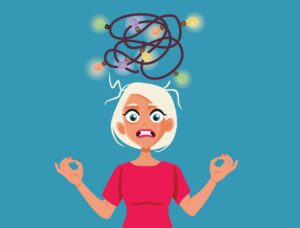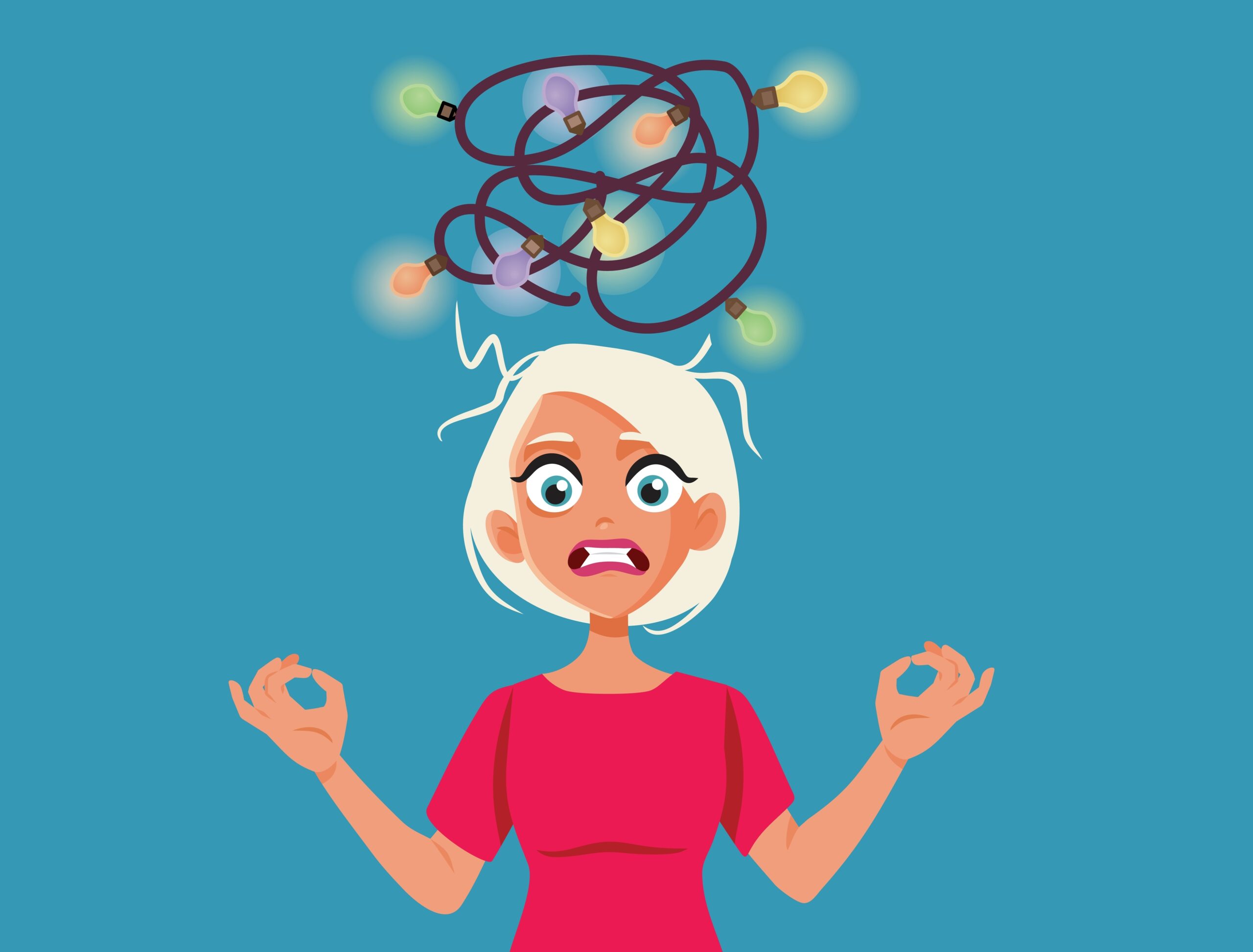Mental health is integral to our overall well-being, yet it is often misunderstood or stigmatized. By increasing awareness and knowledge about common mental health conditions, we can foster greater empathy, understanding, and support for those who struggle. Shedding light on these challenges is an important step in reducing stigma and encouraging more people to prioritize their mental health.
This May, for Mental Health Awareness Month, do your part to better understand the various conditions that many struggle with.
This blog post will provide an overview of some of the most prevalent mental health disorders in the United States, including their symptoms, causes, and treatment options. This foundational knowledge can help you better support loved ones, advocate for mental health resources, and prioritize your mental well-being.
Anxiety Disorders
Anxiety is one of the most common mental health challenges, affecting millions worldwide. Anxiety disorders include generalized anxiety disorder, social anxiety, panic disorder, and various phobia-related disorders.
While some anxiety is typical, those with anxiety disorders experience excessive worry, fear, or dread that interferes with daily functioning. Physical symptoms like racing heart, muscle tension, nausea, and breathing issues often accompany bouts of anxiety. Specific phobias or panic attacks can be triggered by certain situations or stimuli.
Untreated anxiety takes a major toll, disrupting work, relationships, and overall quality of life. However, a combination of psychotherapy (e.g., cognitive-behavioral therapy), medication, lifestyle changes, and coping techniques can effectively manage anxiety symptoms.
Depression
When feelings of sadness, emptiness, or hopelessness persist for extended periods, it may indicate clinical depression. Depression is characterized by a persistent low mood, lack of interest in previously enjoyed activities, fatigue, appetite changes, and difficulties with concentration or decision-making.
There are various forms of depression, including major depressive disorder, persistent depressive disorder, postpartum depression, and seasonal affective disorder. A complex interplay of genetic, biological, environmental, and psychological factors can contribute to its development.
While depression is common, it should always be taken seriously—it raises risks for other conditions and even suicidal thoughts or behaviors. Professional treatment like therapy and/or medication, combined with self-care practices, are crucial for managing depressive episodes and regaining a sense of well-being.
Bipolar Disorder
Rather than a constant low mood, bipolar disorder involves dramatic mood swings between periods of mania (highs of euphoria or irritability) and periods of depression (lows of sadness or hopelessness). These shifts in mood, energy, activity levels, and behavior can be abrupt and extreme.
During manic episodes, one may experience inflated self-esteem, hyperactivity, impaired judgment, reckless behavior, and racing thoughts. Depressive episodes bring feelings of worthlessness, loss of interest, fatigue, and potential suicidal ideation.
Mood stabilizing medications, psychotherapy, lifestyle changes, and support systems are essential for managing bipolar’s cyclical nature. With proper treatment, many are able to control their symptoms and live full, productive lives.
PTSD (Post-Traumatic Stress Disorder)
PTSD is a mental health condition triggered by experiencing or witnessing a terrifying, life-threatening event. This trauma then gets “replayed” through intrusive thoughts, nightmares, and flashbacks, as well as feelings of hypervigilance, anxiety, and negative beliefs.
PTSD symptoms often arise after a traumatic event like combat, natural disaster, physical or sexual assault, childhood abuse, or other threats of injury or death. However, PTSD can impact anyone who’s experienced psychological trauma.
Living with PTSD often means avoiding situations that trigger overwhelming memories and feelings related to the trauma. This commonly leads to problems with relationships, employment, and day-to-day functioning.
While PTSD is difficult to overcome alone, professional treatment through trauma-focused psychotherapy, EMDR, support groups, and sometimes medication can provide significant relief. With self-care habits and healthy coping mechanisms, healing is possible.
Eating Disorders
Eating disorders are serious, potentially life-threatening conditions characterized by severe disturbances in eating behaviors and obsession with food, weight, and body shape. The most common forms include anorexia nervosa, bulimia nervosa, and binge-eating disorder.
While eating disorders are complex with a range of potential causes, at the core is an unhealthy relationship with food, often stemming from psychological distress around control, trauma, self-esteem, and negative body image.
Potential consequences of eating disorders include nutritional deficiencies, heart and organ damage, osteoporosis, infertility issues, and a dangerously high risk of death. Early intervention from mental health professionals, nutritionists, and support systems is critical for disrupting disordered patterns and regaining a healthy perspective on food and body image.
OCD (Obsessive-Compulsive Disorder)
Those with OCD experience repeated, uncontrollable thoughts or obsessions that lead to compulsive behaviors or rituals performed to alleviate anxiety. Common obsessions include contamination fears, doubts, or disturbing intrusive thoughts. Compulsions may involve excessive cleaning, checking, ordering, and other repetitive mental or physical acts.
OCD causes significant distress and disruption to one’s daily routine, relationships, work, and quality of life. Trying to suppress or control obsessions often backfires, causing them to become more intrusive.
However, OCD is treatable through approaches like cognitive-behavioral therapy (CBT), exposure and response prevention (ERP) therapy, and medication. These methods help patients confront their obsessions and resist compulsions in a safe, structured manner to retrain their thought patterns.
Support and Understanding Saves Lives
The above mental health conditions are some of the most common challenges people face, yet there are many others, including various trauma, mood, personality, and psychotic disorders. What they all have in common is that with understanding, support, and proper treatment, they can be effectively managed.
If you or a loved one is struggling, don’t hesitate to reach out for professional mental health support. Break the silence around these issues, practice self-compassion, and prioritize your mental well-being. There is no shame in asking for help. We all deserve to live happy, healthy, fulfilled lives.













